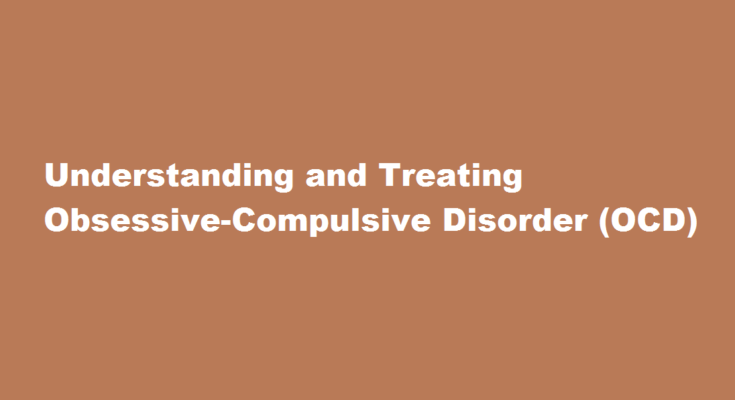Introduction
Obsessive-Compulsive Disorder (OCD) is a mental health condition characterized by intrusive thoughts and repetitive behaviors. It affects millions of people worldwide, causing significant distress and interfering with daily functioning. While OCD can be challenging to manage, there are effective treatments available. This article will explore various strategies and therapies to help individuals with OCD on their journey towards recovery.
Understanding OCD
OCD manifests through two main components: obsessions and compulsions. Obsessions are intrusive thoughts, images, or urges that recur persistently and cause anxiety or distress. Common obsessions include concerns about cleanliness, fear of contamination, and a need for symmetry or order. Compulsions, on the other hand, are repetitive behaviors or mental acts performed to alleviate anxiety or prevent a feared event. Examples of compulsions include excessive hand washing, checking behaviors, and counting rituals.
Seeking Professional Help
If you suspect you have OCD, it’s crucial to consult a mental health professional for an accurate diagnosis. A licensed therapist or psychiatrist can evaluate your symptoms, provide guidance, and create a tailored treatment plan to address your specific needs.
Cognitive-Behavioral Therapy (CBT)
CBT is a widely recognized and effective treatment for OCD. It involves working with a therapist to challenge and reframe irrational thoughts and beliefs, as well as gradually exposing oneself to anxiety-provoking situations without engaging in compulsive behaviors. This process, known as exposure and response prevention (ERP), helps individuals learn healthier ways to manage their anxiety and reduce the frequency and intensity of their obsessions and compulsions.
Medication Options
In some cases, medication may be prescribed alongside therapy to manage OCD symptoms. Selective serotonin reuptake inhibitors (SSRIs), such as fluoxetine and sertraline, are commonly prescribed as they help regulate serotonin levels in the brain. These medications can reduce anxiety and obsessive thoughts, providing relief for many individuals with OCD. It’s essential to consult with a psychiatrist to determine the most suitable medication and dosage for your specific situation.
Lifestyle Changes
Adopting a healthy lifestyle can also contribute to managing OCD symptoms. Engaging in regular exercise, maintaining a balanced diet, and ensuring adequate sleep can promote overall well-being and reduce stress levels. Managing stress through relaxation techniques like meditation or yoga can be beneficial. Additionally, participating in activities you enjoy and connecting with loved ones can help distract from intrusive thoughts and provide emotional support.
Support Groups
Joining a support group, either in person or online, can be immensely helpful for individuals with OCD. Sharing experiences and insights with others who understand what you’re going through can provide a sense of validation and community. Support groups offer a safe space to discuss challenges, share coping strategies, and gain encouragement from individuals who have faced similar obstacles.
Frequently Asked Questions
Can OCD make you question?
OCD — also known as the “doubting disorder” — can make you question things that you were sure of just 5 minutes ago.
Why is OCD a coping mechanism?
If you’ve had a painful childhood experience, or suffered trauma, abuse or bullying, you might learn to use obsessions and compulsions to cope with anxiety. If your parents had similar anxieties and showed similar kinds of compulsive behavior, you may have learned OCD behaviors as a coping technique.
Conclusion
Overcoming OCD is a journey that requires patience, persistence, and professional support. By seeking help, engaging in therapy, and making positive lifestyle changes, individuals with OCD can significantly reduce the impact of their symptoms and improve their quality of life. Remember, there is no one-size-fits-all approach to treating OCD. It’s essential to work closely with mental health professionals to develop a personalized treatment plan that addresses your unique needs and supports your path to recovery. With the right tools and support, managing OCD is possible, and a fulfilling life awaits.
Read Also : How to Make Aloe Vera Gel at Home A Natural Skincare Solution



